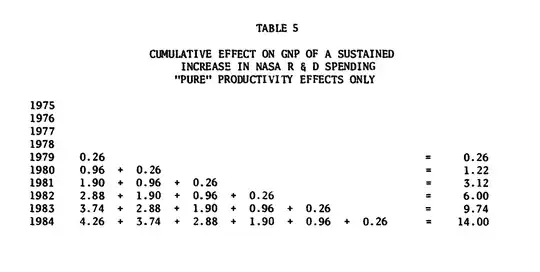One of the oft-cited reasons for funding space exploration is the high return on investment, in terms of boosting the economy.
Studies estimate that for every $1 the U.S. government spends on NASA, the economy is boosted by $7-$14. That means that with NASA’s current budget of $17.6 billion, the U.S. economy will get an injection of anywhere from $123.2 billion to $246.4 billion.
But on being challenged I've not found reliable sources that back up these claims.
Is there a reliable source on this data? Is it misconstrued?
